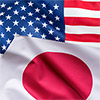Equity
Global Investment Committee Outlook: Especially buoyant non-US equities
Although some on the committee agreed with the market consensus for a moderate continuation of economic growth and equity markets, and a few were even more cautious, especially regarding increased fears of inflation later in 2021, the majority agreed with a more positive scenario in which the global economy outperforms market consensus, while equities, especially those outside of the US, rally sharply.
Asian equity monthly – November 2020
Asian stocks turned in strong gains in November, boosted by positive COVID-19 vaccine developments, rising hopes for better US-Asia ties under the leadership of US President-elect Joe Biden and stronger-than-expected economic data from several Asian countries. The MSCI AC Asia ex Japan Index rose 8.0% in US dollar (USD) terms over the month.
Australian equity monthly - November 2020
The S&P/ASX 200 Accumulation Index returned 10.2% during the month. Australian equities enjoyed a strong month (in fact, the best monthly return since 1992) on positive COVID-19 vaccine news, additional quantitative easing measures locally and increased certainty regarding the US presidential election result.
Japan Equity Monthly - November 2020
The Japanese equity market has posted impressive gains as 2020 draws to a close, with the Nikkei Stock Average reaching a near three-decade high, and we assess the rise from a long-term perspective. We also analyse how Japanese equities have managed to defy a stronger yen.
Efficiency of Japanese corporate investment in human capital and shareholder value
Japan struggles with an aging and shrinking population and it is important for the country, both from an economic and social perspective, to improve its relatively low labour productivity by efficiently utilising its human resources.
Japan IP beats the US in October
For October, on a seasonally adjusted YoY basis, Japan’s October YoY Industrial Production (IP) result was better than both US Manufacturing IP and US Total IP. It likely surpassed Europe’s too.
Significant value waiting to be unlocked in Japan
The COVID-19 pandemic has triggered changes in Japan that would have taken many years to initiate in less turbulent times. We believe there is significant value to be unlocked under such circumstances.
Asian equity monthly – October 2020
US presidential election jitters and an uptick in COVID-19 cases in the US and Europe triggered a downturn in global equities in October. Asian stocks, however, managed to turn in decent gains for the month, owing to a slowing pace of COVID-19 infections in the region and growing optimism over China’s economic recovery. The MSCI AC Asia ex Japan Index rose 2.8% in US dollar (USD) terms over the month.
What the Biden win could mean for Japanese equities
We assess the US election outcome from the perspective of the Japanese equity market, focusing on the economic and policy changes that are expected to accompany the change in US leadership.
Japan Equity Monthly - October 2020
We discuss the reasons behind the Japanese equity market’s recent outperformance and the factors likely required for the gains to be sustainable in the longer term. We also assess the recent surge by the Mothers Index and key points to watch going forward.
Australian equity monthly - October 2020
The S&P/ASX 200 Accumulation Index returned 1.9% during the month. Australian equities were supported by the release of the Federal Budget early in the month which saw increased spending and tax cuts to aid the economy as it recovers.
US presidential election – Nikko AM’s views
In order to gain a range of perspectives on the US presidential election, Nikko Asset Management has gathered the views of the following experts and investment teams, representing many of our major asset classes and geographical regions.
ESG Insight: Biden’s most critical investment
At the time of writing, Democrat presidential candidate Joe Biden leads the polls by 10 percentage points and will likely be elected President of The United States on 3 November 2020. The potential for a Democrat “Blue Wave” with control of both houses easing the passage of legislation also seems possible.
Adapting to the “new normal”: Japan’s paradox
With the global outbreak of COVID-19 in the first half of 2020, the world was turned upside down. Under such circumstances, Japanese companies are now faced with new challenges to adapt to this “new normal”.
Asian equity monthly – September 2020
After three consecutive months of strong gains, Asian stocks finally succumbed to profit taking in September triggered by concerns that the global recovery from the COVID-19 pandemic could be running out of steam.
Australian equity monthly - September 2020
The S&P/ASX 200 Accumulation Index returned -3.7% during the month. Australian equities lagged most developed markets during the month, as most markets took a breather in September.
Internet healthcare - a reset of healthcare delivery in Asia
The Covid-19 pandemic has accelerated the adoption of internet-based healthcare services. Growing in importance, penetration and acceptance, telemedicine will revolutionise and augment Asia’s healthcare systems.
Japan Equity Monthly - September 2020
Yoshihide Suga, Japan’s new prime minister, is widely expected to retain his predecessor’s fiscal and monetary policies known as “Abenomics”.
SugAbe-nomics
It does not seem that there are enough differences between Abenomics and the proposed economic policies of likely new Prime Minister Suga to justify the completely new portmanteau “Suganomics,” as a few analysts have suggested.





















